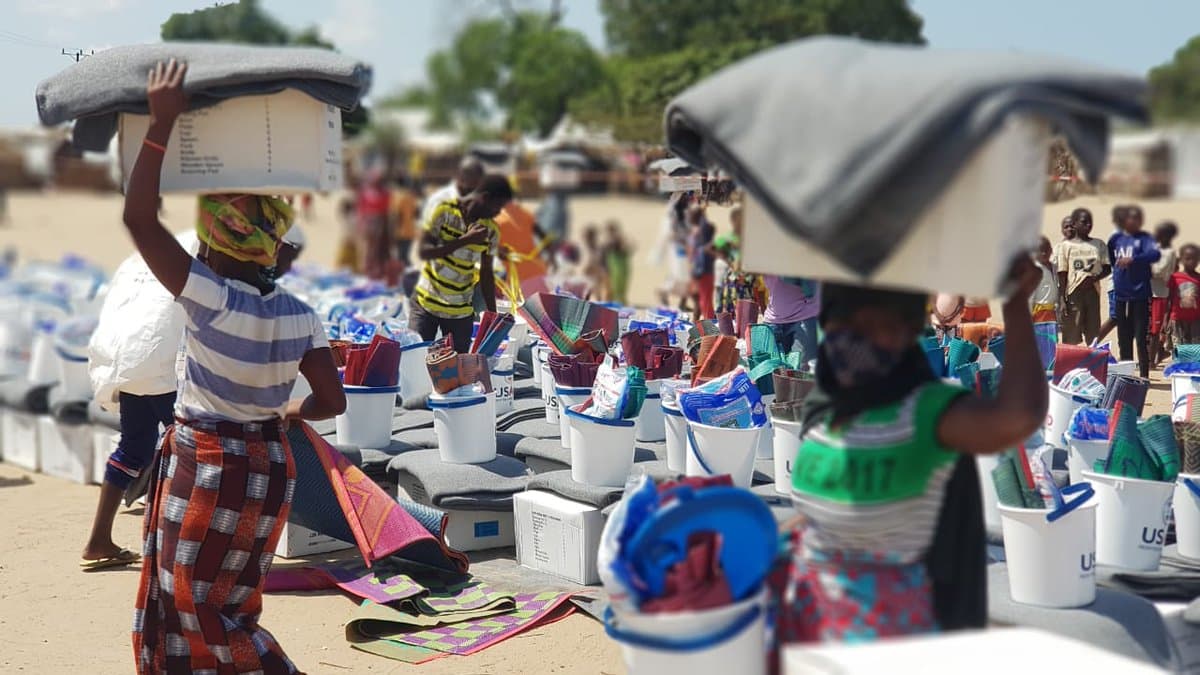Aid agencies and civil society are preparing for a mass return of displaced people as living conditions improve in Cabo Delgado’s northern districts.
News of infrastructure repairs, amenities being restored and food aid reaching areas formerly occupied by insurgents is motivating people to move back. Many are eager to return in time to prepare their plots for planting before the rains begin.
Dozens of displaced people are arriving in Mueda town, from where the routes to the north of the province begin. In Mocimboa da Praia, streetlights were turned on at 6.30pm on Wednesday, after almost a year of darkness.
Meanwhile in the provincial capital of Pemba, Mediafax is reporting that displaced people have been told to get ready to leave at any moment. There are also reports that vessels moored in Pemba’s port are requesting authorization to carry citizens northwards, and since early September, the Mozambican army has been deploying military vehicles to transport civilians back to Mocimboa da Praia and Palma.
Zitamar’s local sources in the town of Palma say there is a flow of returnees to nearby villages — such as Maganja, Modjane, Senga, Ncumbi and Quitunda — along the perimeter of the LNG project site, now that the security situation seems stable.
A joint mission by three United Nations agencies delivered aid to more than 10,000 people in Palma district this week. Boats, trucks and aircraft were used to transport 2,150 kits, each containing food, hygiene items and shelter materials for one family. It was the first time UN agencies had been able to reach these communities since the attack on Palma in late March.
Aid workers also conducted needs assessments during the relief operations.
Plans for psychosocial support are required. Displaced children, especially those orphaned by the conflict, are particularly vulnerable, warned the administrator of Pemba, Joaquina Nordine, in an interview with TVM. Many, she said, have gone through traumatising experiences, needing urgent psychological assistance.
But it’s not just children that are vulnerable. Displaced women, in particular single mothers and widows, are often excluded from food distribution lists or sexually exploited.
Last week in the Nacaca resettlement centre in Ancuabe district, displaced civilians staged a demonstration to protest irregularities in the distribution of food aid because World Food Programme (WFP) aid vouchers for the months of September and October were done earlier than normal. Many displaced families found themselves excluded from the list, while locals were seen receiving the vouchers meant for displaced people. Police had to separate the groups after some protesters attempted to assault workers involved in food aid distribution.
Although civil society and humanitarian organisations are focusing on supporting the returnees, they are hesitant to encourage the civilians to leave the camps.
Catholic cleric Monsignor Antonio Juliasse from the Aid to the Church in Need (ACN) diocese in Pemba, said the church would not advise anyone to return yet. “As far as we are concerned, the indicator will be the knowledge that there really is security on the ground,” he said in an interview this week. “We can’t expose people who have been through such suffering in crisis and are still traumatised by it, to return to situations of fear and conflict and the risk of being maltreated as they were before. It will take a little more time yet.”
He thinks the priority should be making covid-19 vaccines available to the displaced people in the camps.
For most of the people who managed to escape the violence and resettled in camps for safety’s sake, their greatest wish, whenever questioned, has been for peace and to be able to return home.
This article was produced by Zitamar and Mediafax under the Cabo Ligado project, in collaboration with ACLED. The contents of the article are the sole responsibility of Zitamar News.









